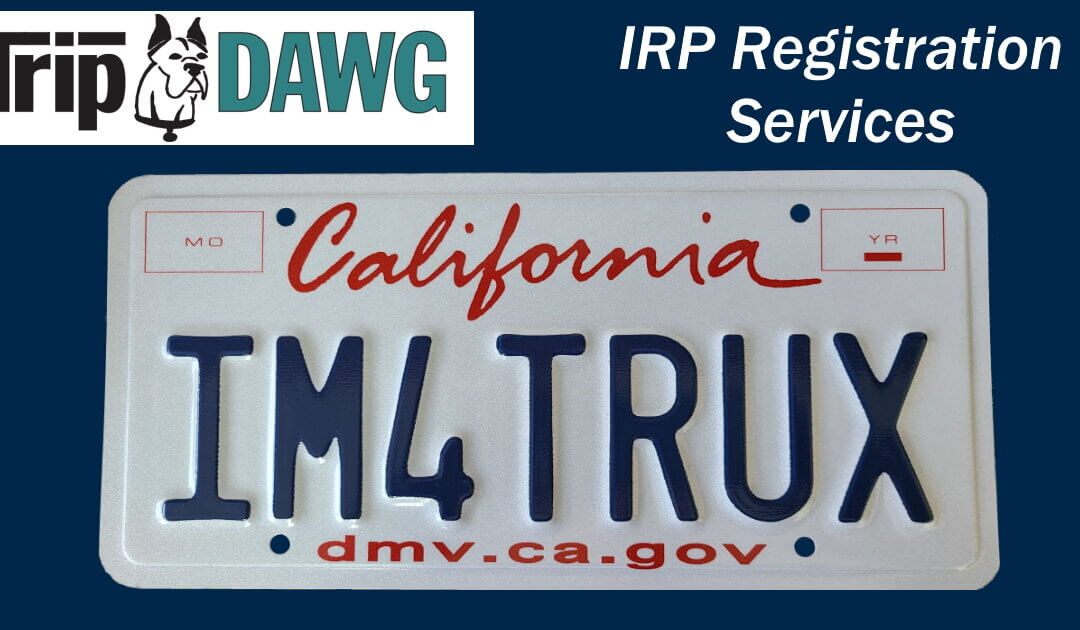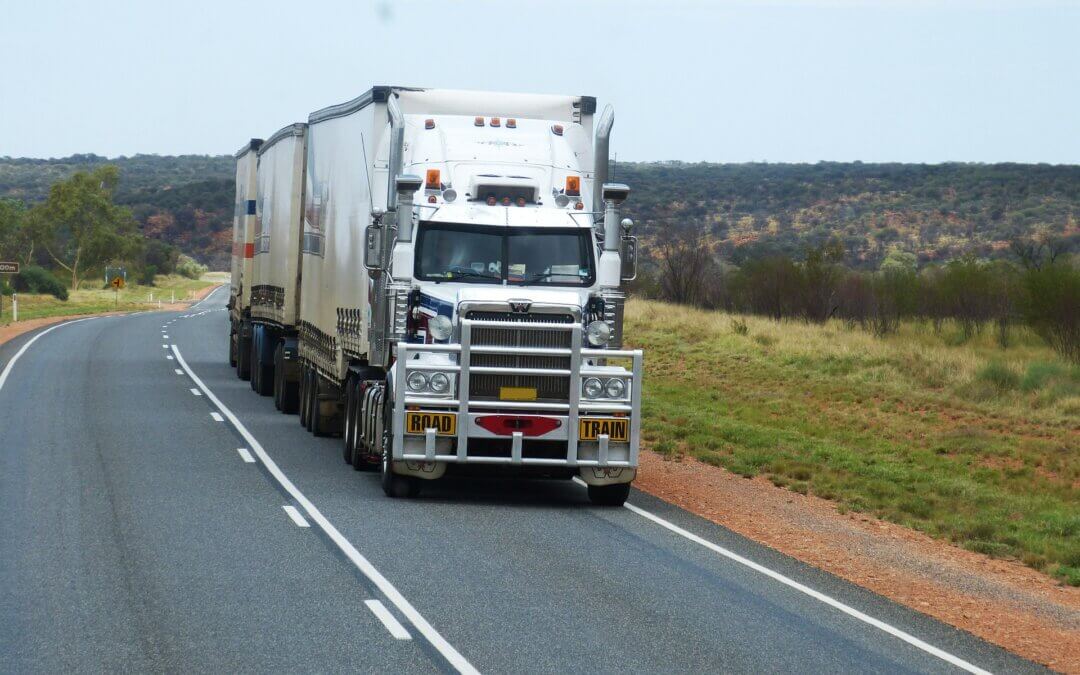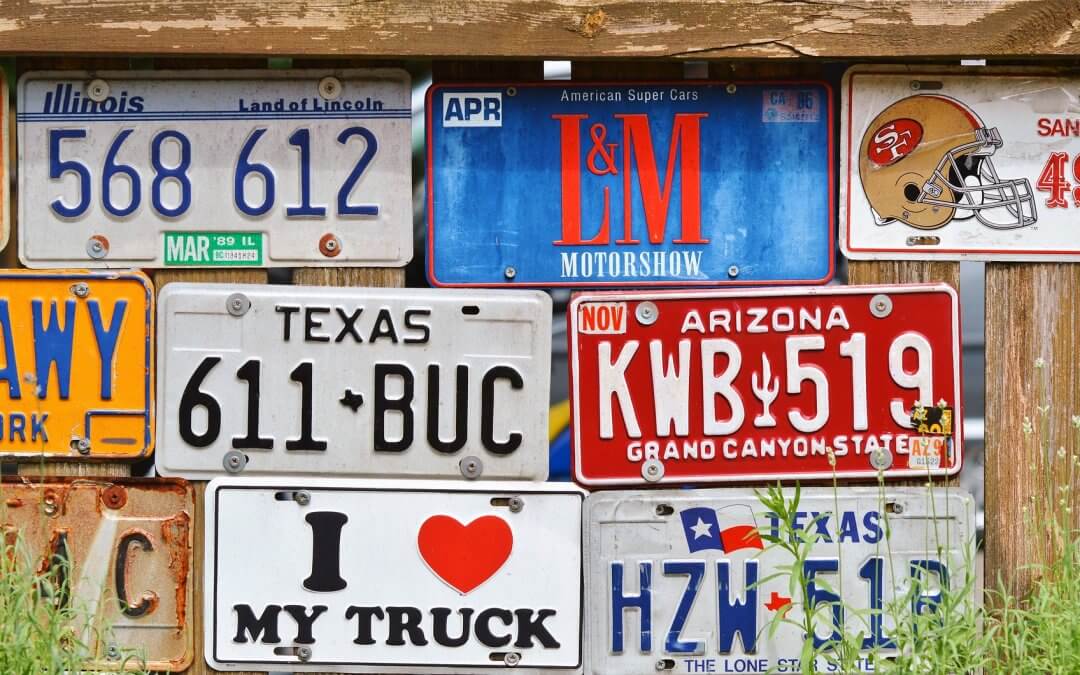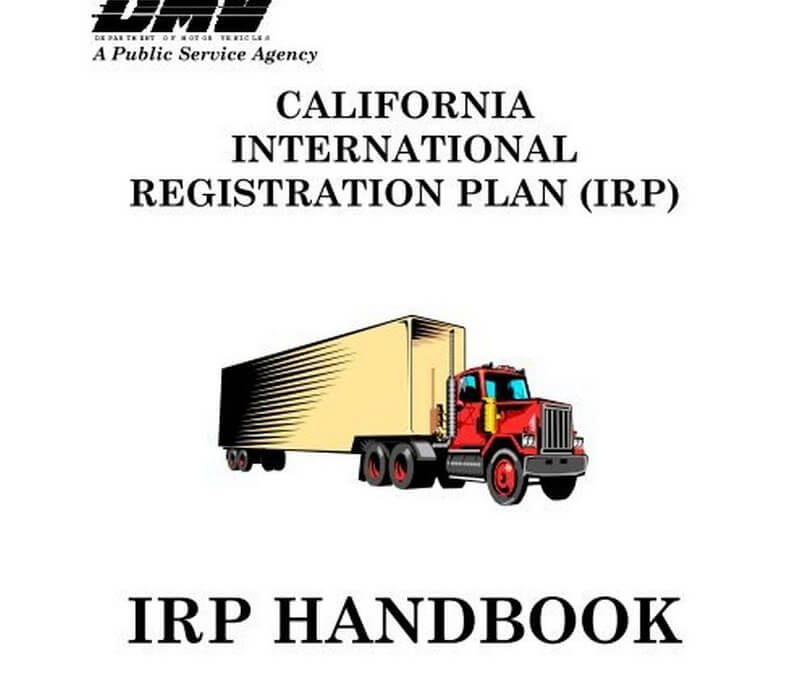
IRP
International Registration Plans, or IRP, is a trucking registration reciprocity agreement regulating the operation and registration of commercial vehicles in both Canada and the United States. It is designed to ensure that all vehicles traveling across the two countries are properly registered and that the fees collected are distributed to the appropriate jurisdictions.
If you’re not sure whether an IRP is right for your fleet, here’s what IRP registration services have to say about this important registration.
IRP for Trucking
The trucking industry has several regulators and each has its own registration requirements. The IRP helps truckers from different countries to comply with these rules and make the necessary paperwork. The IRP will recognize commercial vehicle registration from other jurisdictions, making it easier to manage plans from multiple states and provinces.
IRP jurisdictions simply collect registration fees, from the “home-based” interstate trucking companies depending on where they are registered. Fees are distributed to each member jurisdiction that the company operates in.
What to Use IRP For
Interstate commerce is a major part of the economy, and the IRP encourages easier and faster movement of goods across borders. The IRP is also beneficial for truckers as it reduces the time needed to register and pay fees. Registration in one jurisdiction can also lead to reduced paperwork and faster movement through customs.
Who Needs an IRP Plan
Most truckers need an IRP plan. The only exception may be companies that only operate in a single state or province. Any vehicle operating across many states or provinces requires an IRP. Additionally, if the commercial vehicle is over 26,000 pounds gross, has three or more axles, and crosses state lines, an IRP is required. For companies that operate in multiple states or provinces, an IRP is an invaluable tool to help manage paperwork and reduce the time needed to comply with regulations.
There are many benefits to using an IRP. The most important benefit is the ability to comply with regulations in different states and provinces. This makes it easier to move goods and reduces the time needed to move goods. The IRP is also beneficial for truckers as it reduces the time needed to register and pay fees and makes fleet management much easier.
Get Help With an IRP From Vehicle Licensing Consultants for IRP Registration Services
IRP registration services from vehicle licensing consultants can help you get started and make the necessary paperwork. Our team has experience with IRP plans from all types of trucking companies, and we can help you get the most out of an IRP registration plan. Contact us today for more information about our IRP registration services.

IRP
IRP is an agreement between jurisdictions that allows for the collection of a single fee for the use of a vehicle on public roads in several states. IRP registrations are usually required for trucks and other commercial vehicles operating across state borders. Below, we provide information on IRP registration services and answer some frequently asked questions about IRP registration services.
International Registration Plan (IRP): What is it and Why Do You Need it?
The IRP is an agreement between jurisdictions that allows for the collection of a single fee (known as registration fees) for the use of a vehicle on public roads in several states. IRP registrations are usually required for trucks and other commercial vehicles operating across state borders.
When You Need to Register
If you meet any of the following criteria, you will need to register:
- Your vehicle(s) has a gross vehicle weight of over 26,000 pounds.
- The combined weight of the truck and its cargo is more than 26,000 pounds.
- The vehicle has more than three axles, regardless of size.
- You’ll be going across state or national borders.
Individual Vehicle Mileage Record (IVMR): What is it and Why Do You Need it?
An IVMR is a record of the mileage driven by a particular vehicle in each jurisdiction where it is registered. This information is used to calculate the registration fees owed to each jurisdiction. IVMRs must be kept up-to-date and submitted to IRP administrators upon request.
Frequently asked questions about IRP Registration
How often do I need to renew my IRP registration? IRP registrations are valid for 12 months and must be renewed on or before the expiration date.
How do I renew my IRP registration? You can renew your IRP registration online, by mail, or in person.
What are the penalties for failing to renew my IRP registration? If you do not renew your IRP registration, you may be subject to late fees, as well as penalties and fines imposed by the jurisdiction in which you are operating.
What happens if I change my address or the vehicles on my IRP registration? You must notify IRP of any changes to your contact information or the vehicles on your IRP registration. Failure to do so may result in late fees, penalties, and fines.
Get Help with IRP Registration Services From Vehicle Licensing Consultants
You want to make sure your IRP registration is done right the first time to avoid any penalties or fines. That’s why it’s a good idea to get help from IRP registration services. At Vehicle Licensing Consultants, we can help you with all aspects of IRP registration, from calculating your fees to completing the paperwork.
Contact us today to learn more and begin your IRP registration today.

IRP
What You Need to Know About IRP Registration Services
If you plan to run an interstate shipping business or do runs between the US and Canada, you need IRP registration services.
The IRP – the International Registration Plan for Trucking – is an agreement between the 50 US states as well as Canadian provinces which allow registered trucks to complete shipments across state and country borders, without having to register separately in every jurisdiction. One registration allows for full access, and it’s an absolute requirement if you’re going to run an interstate or international shipping operation.
While you can theoretically handle the paperwork yourself, it’s much easier to simply hire IRP registration services to do the work for you. Here are the basics you should know.
I. Who Has to Register With The IRP?
You will need to register if the following apply to you:
- Your vehicle(s) gross vehicle weight is over 26,000 pounds.
- The combined weight of the truck + cargo is over 26,000 pounds.
- The vehicle has more than three axles, regardless of weight.
- You’ll be crossing state or US/Canadian borders.
The only exceptions are for government vehicles, and for chartered passenger buses.
II. What Does an IRP Registration Cost?
The costs fluctuate depending on where your vehicles will be driving, and how many miles, so it’s difficult to provide a single cost estimate. The fees are apportioned so that each state/province receives a cut, based on how much time the vehicle spends in each area. So, for example, if 50% of your drive time is in California, 50% of the fees you pay will go to California – but the exact amount depends on mileage and hours.
This is one of the areas where IRP registration services can help you calculate and understand your fees before getting hit with any unexpected surprises.
III. What Is Needed for IRP Registration?
The process is fairly complicated, unfortunately, although it’s necessary to ensure that every jurisdiction is represented fairly. Here’s a quick breakdown of the necessities:
1 – A home base
You must have a registered headquarters with a physical address, phone number, etc. The state your headquarters is located in will determine which exact procedures and processes you have to follow when registering. You’ll also need to provide the names of people conducting business at that location, as well as making operational records available if requested.
2 – A USDOT number
USDOT numbers are utilized by the Federal Motor Carrier Safety Administration to track commercial vehicles on the road and would be obtained from them.
3 – FMCSA authorization
This is the authorization that explicitly permits vehicles to operate outside the borders of the state you’re registered in. It comes from the Federal Motor Carrier Safety Administration.
4 – An IFTA permit
The International Fuel Tax Association standardizes fuel use reporting, and associated fees, which is part of the overall structure ensuring each jurisdiction you drive through is compensated. Each state has its own IFTA office.
5 – Various DMV forms
If you’re registering a new business, you’ll need to fill out a Schedule A/E as well as a Schedule B. Changing an existing account, such as updating your headquarters address, requires a Schedule C. Adding jurisdictions to your existing registration also calls for a Schedule F.
Along with your local DMV/DPS, these forms are also commonly available from your state’s IRP office.
IV. Obtaining Plates and Renewals
Once all the bureaucratic processes are fulfilled, particularly the IRP and IFTA accounts, you’ll be able to receive your IRP plate. This plate is specifically for the power unit (i.e., the engine) of your vehicle.
Along with the plate, you’ll also receive an Apportioned Cab Card which lists all the jurisdictions you’re licensed to operate in.
The decals for your registrations should be placed on the lower right corner of the front registration plate. If you’re registering trailers as well, you’ll receive a separate decal for each plate.
Whenever you renew these plates, you’ll need to provide detailed operating information so that your per-jurisdiction fees can be properly calculated. The deadlines and procedures for renewal will depend on which state you’re registered in.
VLC Makes Vehicle Licensing Easy
If it sounds like a lot of work obtaining and maintaining your IRP registration – it is. That’s why shipping companies commonly turn to IRP registration services to streamline the process.
Vehicle Licensing Consultants (VLC) specialize in making this process easy. For over fifty years, we’ve focused on enabling shipping companies to complete their necessary registrations with minimal hassle and help them maintain all their permits to ensure no unexpected problems arise.
If you’re looking to build or expand your shipping operations, VLC can help! Contact us to learn more.

IRP
Properly Following the IRP Registration Process Is Critical for Interstate Shippers
Are you staying current on your International Registration Plan (IRP) registrations? If not, it could cause huge problems for your shipping operation. That might be a great reason to call on IRP registration services to help get you properly registered!
The IRP is a set of regulations that allow shipping companies to be registered and operate in all 48 continental states, along with DC and most of Canada, without having to individually register in every state and territory. This is obviously necessary for robust shipping across the continent, but it requires every shipping operation to remain current on their IRP registration.
If you are setting up a new shipping operation, or aren’t sure if you’re current on your registration, here are the most important things to know!
Filing in your base jurisdiction
Wherever your company is headquartered is considered its base jurisdiction, and that is where you need to handle your IRP registration process. You might have satellite offices in ten states, but if your HQ is here in California, you’ll be following California’s rules and regulations for IRP registration. This will then cover all your operation, across the continent.
The amount of registration costs will vary wildly, depending on how many vehicles you operate, how far they travel, and what percentage of that travel time is spent in which IRP districts. In general, the annual fees per vehicle will likely be in the thousands of dollars.
The difficulty is that every state has its own process and fees, which is why professional IRP registration services can be so useful in overcoming bureaucratic hurdles.
Qualifying for IRP
There are three primary qualifications needed to register with IRP.
First, you must have at least one established place of business.
Second, you must operate in at least two separate jurisdictions covered by IRP. Which is to say, if you only ship within your home state, you don’t need IRP registration.
Third, you must have one or more qualifying commercial vehicles. This means that either they are two-axled, but with a gross weight over 26,000 pounds, or else they have three or more axles at any weight.
Make IRP Registration Easy With VLC!
Vehicle Licensing Consultants specializes in simplifying the regulations and bureaucracy surrounding the shipping industry. VLC is an authorized partner of the California DMV, so we make it easy to get your registration in order and pay your fees.
Click here to learn more about our IRP registration services.




